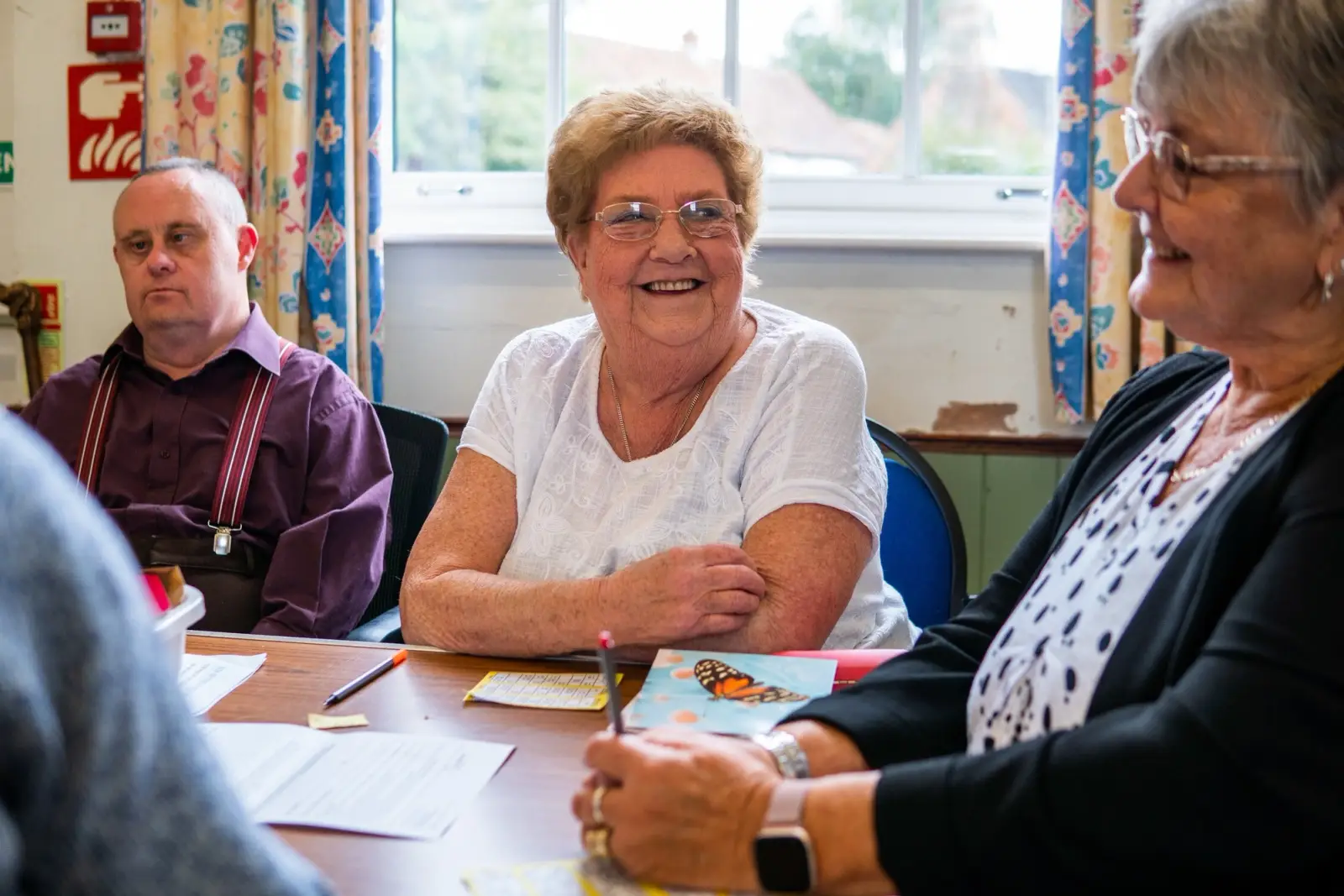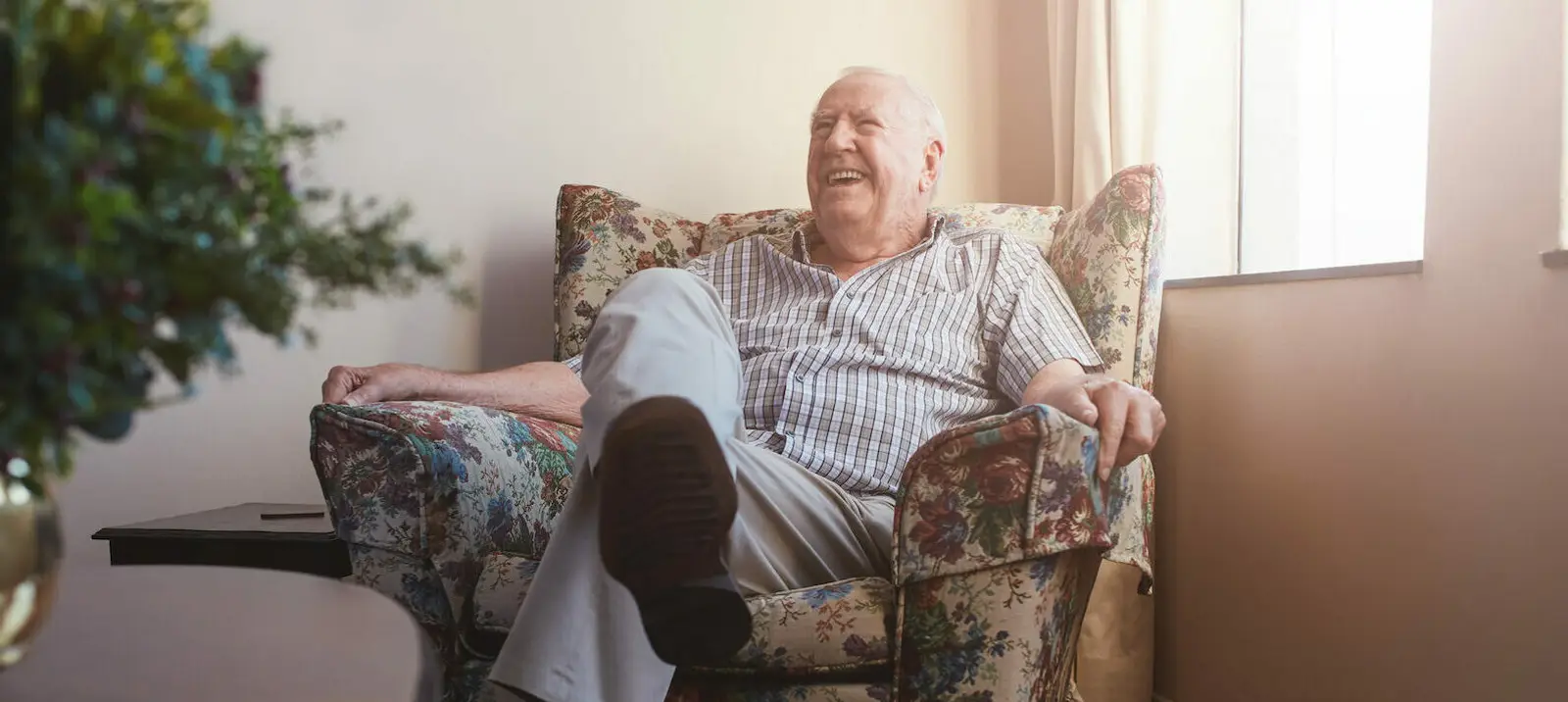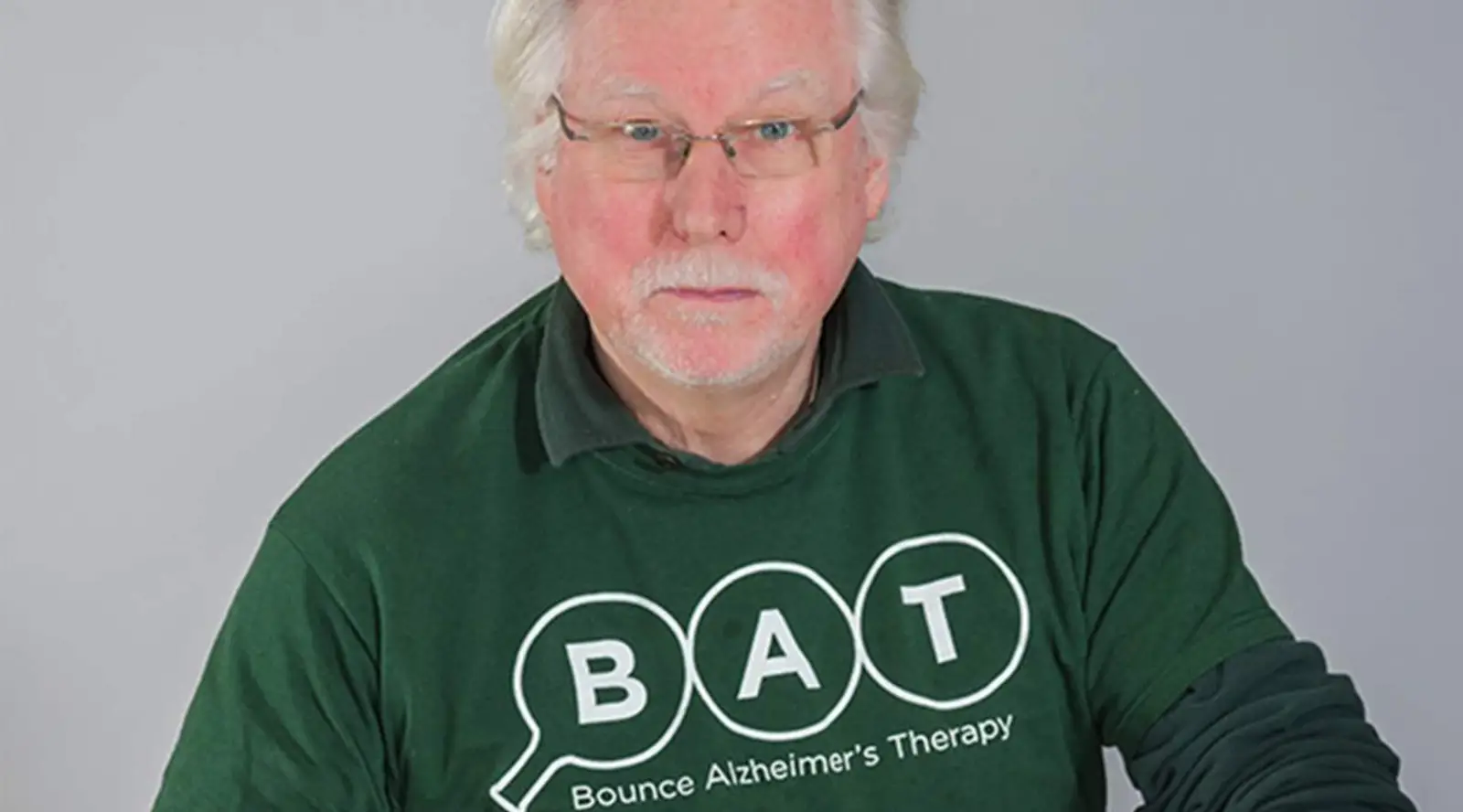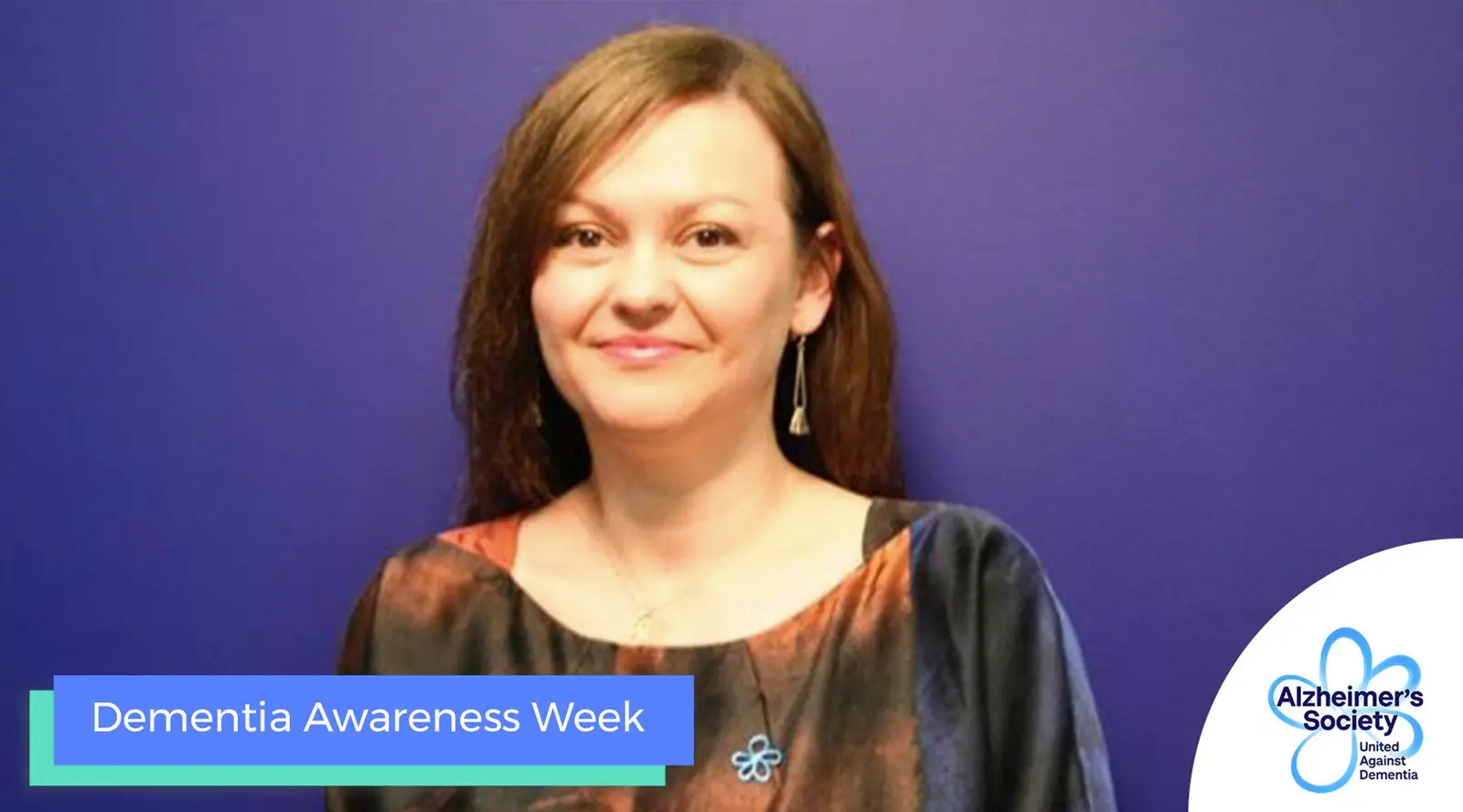Discrimination and dementia
11-minute read | 10/09/2024

Editorial Contributor

Overcoming discrimination and stigma can be a huge challenge for those living with dementia. We've looked at some of the common situations where people with dementia may be treated differently or unfairly, and how we can all play a part to change this.
What is a dementia stigma?
A stigma is a negative or unfair belief based on outdated information or stereotypes. Some common stigma's include –
- "it's impossible to live well with dementia"
- "symptoms of dementia are just a normal part of ageing"
- "nothing can be done to improve the quality of life of someone with dementia"
Stigmas are the result of a lack of understanding and can have a negative impact on daily life for people living with dementia, their families and their caregivers. Learning to recognise a stigma is the first step in challenging them.
- Harmful assumptions – e.g believing things like "a person with dementia can't make their own decisions." or "they aren't safe to be on their own." Another harmful assumption is that dementia is an old age related condition, as this excludes those diagnosed with young-onset dementia from getting the support and understanding they deserve.
- Frustration with how a person with dementia behaves – e.g blaming the person rather than the condition, or becoming embarrassed by the things they do or say.
- Using negative language – e.g using words that focus on a person's weaknesses rather than their strengths, such as saying someone is 'suffering from dementia' instead of 'living with it'.
- Making jokes about dementia – e.g making fun of how a person is behaving, or saying things like 'I must have dementia' when you forget or misplace something.
- Minimising the dementia experience – e.g saying things like "oh I forget things a lot too", or "You don't act like you have dementia."
- A lack of support after diagnosis – e.g Family and friends may avoid a person with dementia or stop inviting them to things. This can happen if they don't know what to say or how to act with them.
- Stigma by association –e.g a person caring for someone with dementia may see their own social relationships break down.
A person with dementia may also feel 'self-stigma'. For example, they may feel like a burden to others or start to doubt what they can do or achieve by themselves.
How dementia stigma can lead to everyday discrimination
When travelling
Because dementia affects cognitive functioning, it often isn't obvious that someone is living with the condition. This can mean they face a lot of stigma and misunderstanding when using public transport. For example, they may be judged for sitting in a priority seat or asked to move. They may not be met with the patience they need when getting on or off a bus or train, paying for their ticket, or if they forget where they're going. In fact, in a study by APPG, 36% of people with dementia said they were concerned about using public transport due to a lack of support and understanding.
In hospital and healthcare
Due to assumptions about cognitive function or memory loss, a person with dementia may find healthcare professionals address their loved one or caregiver, rather than them directly. This can be particularly distressing when key decisions are being made about their care or there's something they would like the doctor to explain in detail. They may also feel like healthcare professionals don't listen to them or take their concerns about their health seriously, or find it difficult to access particular treatments.
At work
Some individuals with dementia who chose to share their diagnosis with their employer have reported getting less support or fewer opportunities. This can often be due to limited understanding of the stages of dementia – with some believing that dementia will always progress very quickly and in a linear fashion. Some people may find their performance and ability at work called into question, and, whether they decide to continue work or leave their career, they may not be offered the same level of support as colleagues with other health conditions.

How to challenge and overcome dementia stigma
In a study by The London School of Economics and The Dementia Alliance International, 84% of people living with dementia had experienced stigma in at least one area of their daily life. This is an unacceptable statistic, and there are lots of small actions we can all take to prevent and manage future stigma and dementia discrimination.
1. Learn about dementia
Talking and learning about dementia is the best way to overcome misinformation and understand the dementia experience. Take time to learn about the different forms of dementia and the different dementia symptoms – charities like Dementia UK and the Alzheimer's Society have some great resources.
Completing an awareness training course could also equip you with the skills to offer the right support to someone with dementia. Some online training courses include –
- Dementia Friends – this initiative from The Alzheimer's Society is free and open to everyone. You can either join an in-person or online session with a Dementia Friend's Ambassador, or watch their short induction videos online.
- The fundamentals of high quality dementia care – This free Government course takes about 6-12 weeks to complete and can help you deepen your understanding of dementia behaviours, and the factors that can influence communication.
- The Alzheimer's Society Learning Hub – Discover a wide range of interactive courses covering each stage of the dementia experience. Each course is between 45-60 minutes long and costs £24.
However, it’s important that you don’t assume you know someone’s personal dementia experience just because you know about the symptoms. Remember to see the person as an individual, and not their illness.
It can also help to hear from people with experiences of discrimination. If you don't know someone living with dementia, there are a number of personal stories online that can give you an insight into what everyday life can be like for those affected by dementia, such as these from Dementia UK.
2. Don't assume someone needs help just because they have dementia
While dementia is a progressive condition every dementia experience is different – a diagnosis doesn't mean a person will instantly need full-time support. A lot of people with dementia can keep their regular routines and independence for a while.
If a loved one is starting to find some daily activities difficult, work together to find new approaches or adaptations to help them continue to do these things for themselves. If you know or see someone who seems confused, lost or is clearly finding something difficult it's appropriate to ask if they're okay and if they'd like your help.
However, offering help or jumping in and completing a task for someone just because they have dementia can be upsetting, frustrating and disempowering for that person.
3. Help them feel confident in public situations
Maintaining a routine, getting out and about, and seeing friends can be incredibly important to a person's sense of purpose and confidence. However some people with dementia may shy away from public situations, which can increase stigma around the condition. You could try offering to go shopping together, planning an outing somewhere that sparks their interest or arranging to meet for a coffee in a cafe or park, rather than at their house.
Carrying a form of identification to show members of the public that they may need support may help them feel more confident too. For example a sunflower lanyard is widely recognised, and many public transport companies have discreet assistance cards that can be downloaded and printed out at home.

4. Be mindful of the words you use
Words can be hugely powerful in how they make others think and feel. All too often society talks about people with dementia in terms of what they can't do, rather than what they can. Saying things like 'dementia patient', 'away with the fairies', 'senile' or making jokes at their expense can have a profound impact on a person's mental health and self-esteem, while reinforcing negative stereotypes. People may also use terms that label people by their behaviour, calling them 'difficult' or a 'loud' If you hear others using negative language, you could suggest an alternative word or phrase, or counteract their statement with a positive one.
How we say things matters too. Using a higher pitch than normal and cutesy language like 'dear', even if your intentions are good can be patronising and infantilising. Be mindful of the pace you speak at too. If you’re asking a question or giving information too quickly, a person with dementia may find it difficult to understand or process what you’re saying. Find more communication tips here.
5. Accept that you may make mistakes
No one is perfect and dementia is unpredictable. Accidentally saying the wrong thing or responding to a situation in the wrong way is human nature, and it can take some time to feel confident enough to put the things you're learning into practice. The important thing to remember is that by increasing your understanding of dementia you're still making a difference and helping to fight against the impact of stigma.
6. Support caregivers too
The carers of people living with dementia face a lot of the same challenges – they may lose friends, struggle to access the services they need, or be treated differently, especially while accompanying the person they're caring for. This can all take a big toll on their mental health.
Taking time to understand what they're going through and the realities of caring for dementia is a good place to start. Offering help with little things can make a big difference, for example, if you know the carer personally you could offer to do some laundry for them, or pick up a few bits for them when you do your supermarket shop.
If you see a carer out and about who's struggling to calm or communicate with the person they're caring for, perhaps you could ask them if they're okay, if there's anyone you can call, or anything you can do to help make the situation easier – such as asking any onlookers to give them some space, or offering to help them with their belongings if they need to quickly take the person they're caring for somewhere quieter.
Sources –
- https://www.alzheimers.org.uk/sites/default/files/201906/APPG_on_Dementia_2019_report_Hidden_no_more_dementia_and_disability_media.pdf
- https://www.alzheimers.org.uk/blog/dementia-stigma
- https://www.dementiauk.org/wp-content/uploads/dementia-uk-understanding-and-challenging-stigma-discrimination.pdf
- https://www.lse.ac.uk/News/Latest-news-from-LSE/2022/j-October-22/As-many-as-84-per-cent-of-people-living-with-dementia-report-experiencing-discrimination-new-toolkit-aims-to-reduce-stigma
- https://alzheimer.ca/en/about-dementia/stigma-against-dementia/what-does-stigma-against-dementia-look
- https://www.dementiauk.org/information-and-support/living-with-dementia/dealing-with-stigma/
- https://www.alzheimers.org.uk/sites/default/files/2018-09/Positive%20language%20guide_0.pdf





